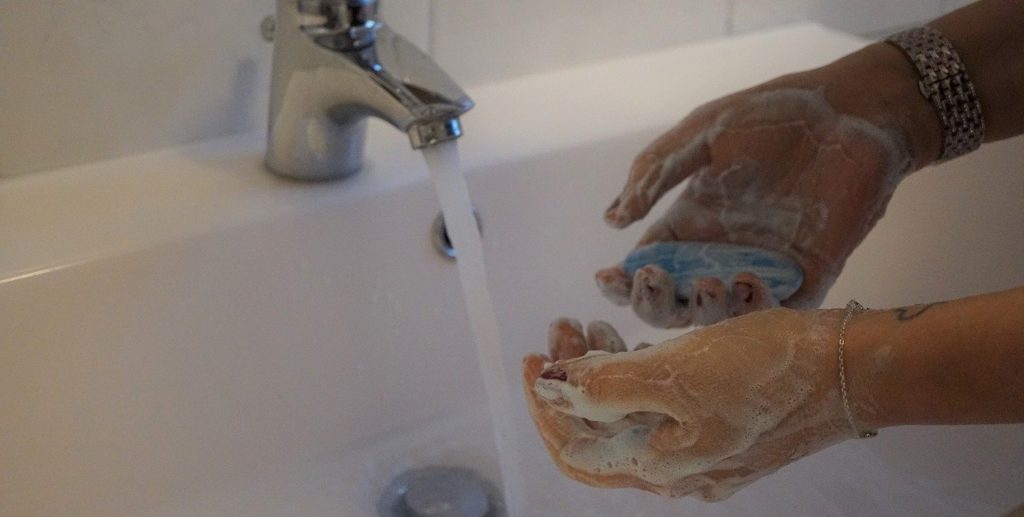
With the coronavirus sweeping all around the globe, it has become increasingly important that everyone take steps to protect themselves and their loved ones, so as to avoid contracting the disease. In Tupelo and elsewhere in this country, many people are scrambling to find ways to protect themselves, because it is generally known that there is no vaccine in existence which will protect someone against the coronavirus disease. One additional aspect of senior home care which everyone has to be aware of now is that the only way to avoid being infected is to not be exposed to the virus.
This virus is known to spread primarily from person to person, between individuals who come within a radius of six feet with each other. It can be spread when someone’s hands touch you, or it can be passed on through respiratory droplets produced when someone sneezes or coughs. When those droplets land in your mouth or your nose, they will probably get inhaled directly into your lungs, where the virus will immediately go to work to damage your lungs and your respiratory system.
How to protect yourself
The first step you should take for self-protection is to make a habit of coming no closer than six feet with most individuals you encounter on a daily basis. This may not be practical with loved ones or with caregivers, but hopefully these individuals are practicing good hygiene and will be less likely to be carriers of the disease. If you’ve been out in public for any length of time at all, you should wash your hands when you get back home, using soap and water for at least 20 seconds.
If you don’t have access to soap and water, it will be acceptable to use hand sanitizer, which contains 60% alcohol content as a bare minimum. Make sure all surfaces of your hands are cleaned by the hand sanitizer, and after you’ve finished washing, make sure they are also dried, so there is no water medium on the skin surface. If you haven’t washed your hands recently, you should make a point of not touching anywhere near your nose, mouth, or eyes. It’s okay to rub these areas after you have washed your hands and completely removed any germs or bacteria.
Protecting others
The first thing to be aware of if you really want to protect others from the disease and help stop the spread of the virus is that you should absolutely stay home if you feel sick. Of course, if you need to travel to your doctor for treatment, that will be the one exception to this mandate, but in virtually all other cases, you should stay home so as to prevent the possibility of passing on germs and bacteria to others.
Whenever you have to cough or sneeze, you should make sure to cover your mouth with a tissue, or use the inside of your elbow so as to ensure that respiratory droplets are not projected into the immediate area around you. If you do use tissues, make sure that you immediately discard them in the trash bin, so there’s no possibility of anyone else picking them up and becoming infected.
After a sneezing or coughing episode, you should wash your hands with soapy water for 20 seconds, and if this is not available, you should make sure to use hand sanitizer which contains 60% alcohol content. Another good precaution you can take to protect others is to wear a facemask when you’re not feeling up to snuff. If you have difficulty breathing when you put a facemask on, you should at least make every effort to prevent the spread of bacteria by coughing or sneezing into your elbow, or using a tissue.
If you are not sick, and you are not going to come in contact with anyone else who might be sick, then you should not wear a facemask. Facemasks are in very short supply all around the US, so it’s best that those which are available should be reserved for caregivers and medical personnel.
For yourself and others
Make a point of regular cleaning and disinfecting all surfaces around your home which are frequently touched. This might include light switches, doorknobs, countertops, phones, desks, tables, keyboards, toilets, handles, sinks, and faucets. All these surfaces should have a strong detergent or soapy water applied to them, and whatever you use should have a strong germ-killing agent, so that you can be sure all surfaces have been cleaned and disinfected.
If you don’t happen to have one of these powerful cleaning agents on hand, you can make your own by mixing one-third of a cup of bleach for each gallon of water you put in a bucket. Ordinary household bleach will be quite effective against coronavirus when it’s diluted like this and used as a cleaning agent.
If you can take a few simple steps like this around the home, it will go a long way toward keeping yourself and others healthy and protected from the possibility of contracting the coronavirus disease. It’s certainly worth the time and effort involved to protect yourself and your loved ones against the potentially devastating effect of this powerful virus.
